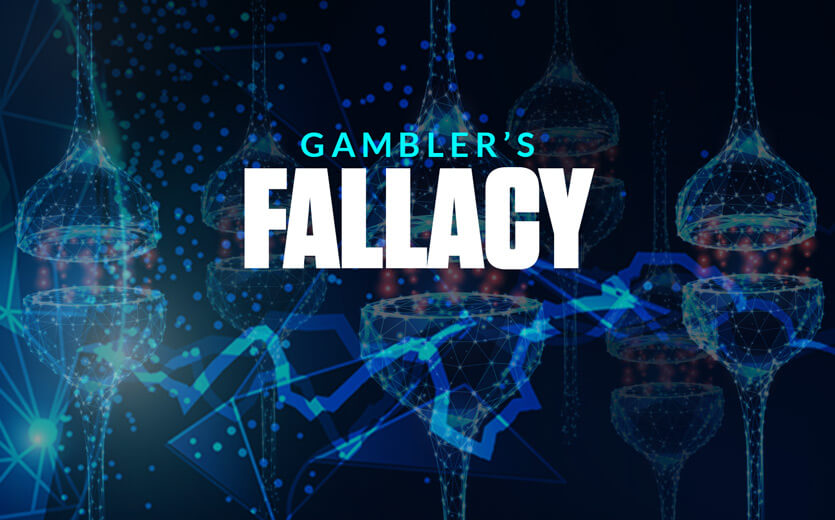At the core of human psychology lies a complex web of emotions, biases, and perceptions that shape our decisions and actions. One of the most profound aspects of this intricate system is our response to the experiences of winning and losing. From the early days of our ancestors, where winning could mean a successful hunt and losing could be a matter of life and death, our brains have evolved to process these two outcomes differently.
Understanding Loss Aversion
Loss Aversion is a principle rooted in behavioural economics and psychology, describing the innate human tendency to prefer avoiding losses over acquiring equivalent gains. In simpler terms, the pain and displeasure we experience from losing something valuable are typically more intense than the joy and satisfaction of gaining something of equal value.
Loss Aversion in Everyday Life
While the concept of Loss Aversion is commonly discussed in the context of financial decisions and gambling, its implications span across various facets of our daily lives:
- Selling Items: People often list used items for sale at prices higher than market value because they overvalue what they own—a phenomenon known as the endowment effect.
- Risk Aversion in Investments: Investors might hold onto losing stocks longer than they should, hoping they’ll rebound, while selling winning stocks too quickly to secure a gain.
- Decision Paralysis: The fear of making a wrong choice and facing a potential loss can lead individuals to avoid making a decision altogether, missing out on potential benefits.
The Psychology Behind the Intensity of Loss
But why do losses sting so much more than gains? From an evolutionary perspective, our ancestors faced life-threatening risks regularly. Avoiding potential dangers (or losses) was often more crucial for survival than acquiring gains. Over time, this aversion to loss became hardwired into our psyche.
The Gambler’s Fallacy Unveiled
The Gambler’s Fallacy is a cognitive bias where individuals mistakenly believe that past events can influence the probability of a random event occurring in the future. In essence, it’s the erroneous conviction that if something happens more frequently than normal during a given period, it will happen less frequently in the future (or vice versa).
For instance, if a coin is flipped and lands on heads five times in a row, the Gambler’s Fallacy would lead one to believe that tails is “due” on the next flip, even though the odds remain a consistent 50-50.
Common Misconceptions and the Allure of the Fallacy
The allure of the Gambler’s Fallacy often lies in our innate desire to identify patterns and make sense of sequences. Some common misconceptions include:
- Belief in the Law of Averages: Many assume that nature has a way of “balancing things out.” Thus, after a long streak of one outcome, they expect the opposite outcome is bound to happen soon.
- Overestimating the “Due” Factor: After witnessing a series of the same outcomes, people tend to believe that the opposite outcome is not just possible but due.
- Misunderstanding Probability: Random events, like coin tosses or roulette spins, are independent of each other. The outcome of one event doesn’t influence the outcome of the next.
Historical Manifestations of the Fallacy
Throughout history, the Gambler’s Fallacy has been evident in various scenarios:
- Monte Carlo Casino, 1913: One of the most famous examples occurred at the Monte Carlo Casino when a roulette wheel landed on black 26 times in a row. Gamblers lost millions betting against blacks, erroneously assuming that a red outcome was imminent.
- Judicial Misjudgments: In some documented court cases, juries have been shown to be influenced by the Gambler’s Fallacy. If a series of decisions favoured one side, jurors might lean towards the opposite side in subsequent decisions, erroneously believing in a need for “balance.”
- Sports and “Hot Hands”: In sports, a player who has had a successful streak is often deemed to have a “hot hand” and is expected to perform well in subsequent games, despite each game being an independent event.
Understanding the Gambler’s Fallacy is crucial, especially in scenarios where decision-making can have significant implications. By recognizing this bias, we can make more informed, rational choices, whether in the world of gambling, finance, or everyday life.
Interplay Between Loss Aversion and the Gambler’s Fallacy in Online Gaming
Manifestations in the Digital Arena
In the world of online gaming, the psychological constructs of Loss Aversion and the Gambler’s Fallacy play out in intriguing ways. Loss Aversion leads players to feel the sting of losing more profoundly than the elation of a win. Meanwhile, the Gambler’s Fallacy convinces them that after a series of losses, a win is due, skewing their perception of probability.
The Vicious Cycle of Continuous Play
These two tendencies can often feed into each other, creating a compelling loop. A player experiencing a losing streak feels the weight of their losses keenly due to Loss Aversion. This emotional low then becomes fertile ground for the Gambler’s Fallacy to take root. The player starts believing that their streak of bad luck means a win is imminent. This belief, in turn, fuels the desire to continue playing, hoping to see that much-awaited win and recover their losses. Each subsequent loss only intensifies the belief that a win must be around the corner.
Exploitative Strategies by Gaming Platforms
Aware of these psychological biases, many online gaming platforms devise strategies to capitalize on them:
- Teasers and Near-Misses: Some games are designed to frequently show near-miss outcomes, making players believe they were “so close” to winning, further fueling the belief that a win is imminent.
- Loyalty Programs and Continuous Bonuses: By offering regular bonuses, platforms keep players engaged, especially those hoping that the next bonus might be their ticket to a turnaround.
- Time-Limited Offers: By creating a sense of urgency, platforms tap into the player’s fear of missing out, pushing them to play more in a limited time frame.
- Highlighting Big Wins: Many platforms prominently showcase players who’ve won big, reinforcing the belief that the next big win could be just a few plays away.
- Personalized Player Profiles: By tracking a player’s behaviour, platforms can tailor offers and games that specifically tap into a player’s psychological tendencies, making them more likely to continue playing.
In conclusion, the interplay between Loss Aversion and the Gambler’s Fallacy creates a potent cocktail that can drive continuous play in online gaming. As players, recognizing these tendencies and understanding how platforms might exploit them is the first step towards a more informed and balanced gaming experience.
The Lure of Online Casino Bonuses
Demystifying Online Casino Bonuses
Online casinos, in a bid to attract and retain players, often offer a plethora of bonuses. These incentives can range from sign-up bonuses (a bonus given just for creating an account), deposit match bonuses (where the casino matches a certain percentage of a player’s deposit), to free spins on popular slot games. At face value, these bonuses seem like generous gifts, offering players “free” money or chances to play. However, they often come with strings attached, such as wagering requirements, which mandate players to bet a certain amount before they can withdraw their winnings.
Bonuses: A Beacon for the Hopeful
For many players, especially those experiencing a losing streak, bonuses become a beacon of hope. The allure lies in the belief that with this “extra” resource, they can turn their luck around. It plays into the psychological desire for a second chance and the hope to recover previous losses. Coupled with the aforementioned Gambler’s Fallacy, players might be convinced that after a string of bad luck, a win, potentially magnified by the bonus, is imminent.
For players seeking to maximize their online casino experience while minimizing potential pitfalls, consider the following tips:
- Read the Fine Print: Always familiarize yourself with the terms and conditions associated with a bonus. Look for wagering requirements, game restrictions, and withdrawal limits.
- Set a Budget: Before diving into the games, set a clear budget for how much you’re willing to deposit and wager. Bonuses can sometimes entice players to deposit more than they initially intended.
- Avoid Chasing Losses: Remember that bonuses aren’t a guaranteed way to recoup losses. Play for entertainment, and know when to walk away.
- Seek Reputable Casinos: Not all online casinos are created equal. Choose platforms known for transparency, fair play, and prompt customer service.
- Stay Informed: Online casino landscapes change frequently. Subscribing to casino newsletters or forums can keep you updated on the latest bonus offers and their associated terms.

Welcome to our blog! My name is Yuvraj Kore, and I am a blogger who has been exploring the world of blogging since 2017. It all started back in 2014 when I attended a digital marketing program at college and learned about the intriguing world of blogging.
